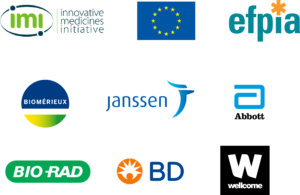Interview with Professor Bojana Beović
/in Interviews/by Leandra1. What is your role in the AMR field and what does it entail?
I am the Chair of the Antimicrobial Stewardship Unit at the Department of Infectious Diseases at the Ljubljana University Medical Centre. In addition, I am the chair of the so-called Intersectoral Coordination Mechanism for the Control of Antimicrobial Resistance at the Ministry of Health of Slovenia. This is a multidisciplinary group that manages AMR activities in the country. It includes the medical sector, the veterinary sector, and environmental specialists.
2. Why should people be concerned about AMR?
It is a well-known fact that antimicrobial resistance reduces the quality of care. Also in Europe, several analyses showed that AMR places a considerable burden on the healthcare system, including excessive mortality. Especially during epidemics, there was less attention paid to antimicrobial resistance and the conditions in many hospitals did not allow for its control, leading to a sharp increase. We will have to compensate for the loss caused by the COVID-19 pandemic in the coming years. In addition, the attention of the general population and media shifted from AMR to the Coronavirus disease, despite our efforts during the World Antibiotic Awareness Week last November.
3. What is the expected impact of the work you’re doing?
I have been working in this field for more than 20 years, and we were able to stabilise antimicrobial use and antimicrobial resistance through various activities. This does not mean that our job is done. I believe that stable daily activities are necessary in order to get the situation under control in a long term perspective. Therefore, in my opinion, the most important achievement is that antimicrobial stewardship is recognised and accepted as one of the normal daily activities in the hospital.
4. With regards to AMR, what’s the context in your country?
Eurobarometer data show that awareness of general public has decreased. In 2019, the Slovenian Government adopted a strategy for combating antimicrobial resistance, but because of the pandemic, many activities were not undertaken. The problem is that fighting AMR is a political commitment that is not followed by any funding. In Slovenia, most activities are still voluntary or financed from other sources and there is no financial support for the programmes of the government or the Minister of Health.
5. How did the COVID-19 pandemic impact the research on AMR?
It was obviously very difficult to cover the shifts during the pandemic with sufficient staff. Most of the doctors and microbiologists were involved in various COVID-19 activities. However, we were able to carry out two analyses. First, we sent out a survey asking doctors on an international scale whether they prescribed antibiotics to patients with COVID-19. The response from my colleagues in Slovenia showed relatively modest use. In addition, we conducted an international point prevalence study, comparing antibiotic use in COVID-19 patients in the ICU and in ordinary wards in Serbia, Croatia, Slovenia, and Italy. Our results showed that antibiotic use in Slovenia was relatively modest compared to other countries. We do not have data on antimicrobial resistance yet, but we are aware of a number of extremely resistant bacteria that were previously absent from some intensive care units in Slovenia, despite a generally relatively modest use of antibiotics. It is probably a consequence of antibiotic use and poor infection control during the most intensive peaks of the pandemic.
- About Bojana Beović
Prof Bojana Beović, MD, PhD has been employed at the Department of Infectious Diseases at the University Medical Centre in Ljubljana since 1986. Since 2008 she is the head of the Antibiotic Committee in UMC Ljubljana. At the European Society of Clinical Microbiology and Infectious diseases (ESCMID), she was the honorary secretary of the ESCMID Study Group for Antibiotic stewardship (ESGAP) from 2009 to 2014. At the moment, she is the head of the ID Consultancy Service, chairs the Medical Chamber of Slovenia and is full professor of infectious diseases at the Medical School, University of Ljubljana. Her current focus of interest in research is antibiotic stewardship, and antibiotic therapy.



